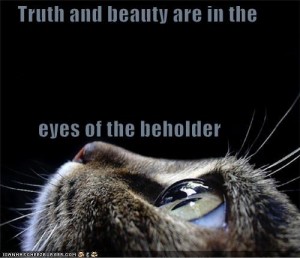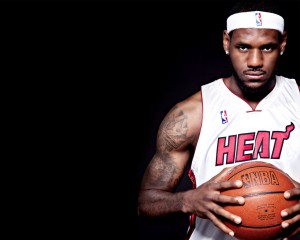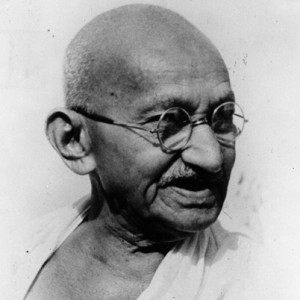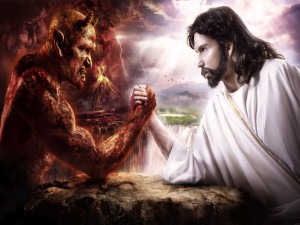Roy Baumeister, an eminent professor of psychology at Florida State University, has spent much of his professional life studying the causes of evil. Last year he published an article in which he lamented a problem with approaching evil from a scientific standpoint: “Social scientists are not supposed to let their values cloud their judgment, because doing so can impede the impartial search for truth,” he said. Yet when scientists remain impartial about evil, they are often criticized for seeming to condone it.
Scientists who study evil attempt to understand perpetrators’ motives and attitudes, and while doing so, scientists may begin viewing evil actions as less atrocious than how others judge them. After all, those who commit evil do not regard their actions as evil. And so understanding an evil-doer’s mindset may diminish (even slightly) the scientist’s beliefs about the evilness of the perpetrator’s actions. According to Baumeister, scientists who study evil “carry the moral risk of mitigating their condemnation of some of the worst things that human beings do.”
Baumeister concludes that “if we as social scientists restrict our focus to actions that everyone, including the perpetrator, agrees are evil, we will have almost nothing to study.  It is therefore necessary to define evil as in the eye of the beholder.” In short, evil must be defined in a way that is “not strongly tethered to objective reality.”
It is therefore necessary to define evil as in the eye of the beholder.” In short, evil must be defined in a way that is “not strongly tethered to objective reality.”
In my studies of heroism, I’ve encountered a similar issue. There isn’t as much consensus about what defines a hero as one would think. Most people agree that heroes perform great actions, but one observer’s idea of a great action may be very different from that of another observer. Just as evil-doers dismiss the idea that they are evil-doers, heroes themselves often dismiss the idea that they are heroes. As such, my co-author George Goethals and I have adopted a view of heroism that is identical to that of Baumeister’s definition of evil: It’s in the eye of the beholder.
This definition is very unsatisfying to people who claim to know the objective definition of heroism. Goethals and I have asked hundreds of people to list their heroes and our position is that it’s not our place, as social scientists, to judge people as “wrong”. If tennis players report that tennis great Roger Federer is their hero, we are not going to tell them they are mistaken. If aspiring actresses list Meryl Streep as their hero, we will report it without condemning their judgment. Our goal is to try to understand their reasoning behind their choices.
Can I, or should I, instruct my daughter about what a hero is from my own personal perspective? Yes. In my role as a father, I should probably share my values about heroic action with my child.  But as a social scientist, I just report the results of our surveys and try to make sense of them. In doing so, I know I open myself up for criticism.
But as a social scientist, I just report the results of our surveys and try to make sense of them. In doing so, I know I open myself up for criticism.
I may believe that athletic prowess is not especially heroic, but that won’t stop me from reporting what people say when asked who their heroes are. Goethals and I believe that people’s beliefs about heroes, however misguided they may or may not be, are worth studying from a scientific perspective.
People have very different ideas about who society’s heroes are. My goal isn’t to support or refute their choices, but merely to explain them. People believe their heroes are either highly moral, highly competent, or both.  Some people believe that heroism requires a lifetime of self-sacrifice; others believe that one self-sacrificing action is sufficient for heroism. Opinions vary widely. But we have found some common patterns. For example, people tend to believe that heroes possess many or all of The Great Eight traits of heroes: smart, strong, caring, reliable, resilient, selfless, charismatic, and inspiring.
Some people believe that heroism requires a lifetime of self-sacrifice; others believe that one self-sacrificing action is sufficient for heroism. Opinions vary widely. But we have found some common patterns. For example, people tend to believe that heroes possess many or all of The Great Eight traits of heroes: smart, strong, caring, reliable, resilient, selfless, charismatic, and inspiring.
Here’s some encouraging news for people who don’t like many of the individuals that people list as their heroes: Goethals and I have found that as people get older, they become more discriminating in their choice of heroes. People tend to outgrow celebrity and sports heroes who only show signs of competence but not much morality. In our 2012 article and in our Heroic Leadership book, we call heroes whom we outgrow transitional heroes. We’ve found that as people get older, they are less likely to list LeBron James, Roger Federer, or Meryl Streep as heroes. They are more likely to list Gandhi, Martin Luther King, Jr., or Wesley Autrey, the New York subway hero who threw himself on the train tracks to save the life of a complete stranger.
As a social scientist who should remain objective about my reporting of heroes, I shouldn’t express my opinion about the natural maturation process leading people to place greater weight on morality than on competence when choosing heroes. But I can’t resist saying I’m glad to hear it.
– – – – – – – – – – – – – – – – –

Enjoyed the article Scott ~ maybe as we become older we become more aware of how precious our time really is and that’s why we focus more on stuff that really matters… peace brother!
You always get me thinking ……… good read!
It’s interesting to note that the individual who wrote the critique of your book didn’t really seem to understand this. He criticized the inclusion of Ulysses S. Grant, citing accusations of corruption, yet he posts his own list of heroes who include Ralph Nader and Bradley Manning. Nader has been viewed as a bit of a villain for his influence in the 2000 Presidential election, which some Democrats accuse him of giving the Presidency to George Bush. And many view Bradley Manning as a traitor.
Eye of the beholder.
Thanks for this reply, Scott. Let me see if I can push on your central claim a bit more, in the hopes of clarifying the argument against relativism that I’ve been making.
I teach and write about human rights, a topic that can be quite divisive. One of the central critiques of human rights is that they are Western in origin and thus that non-Western cultures will adhere to a different set than Western cultures do (or they won’t think of rights in the way Westerns do at all). To study human rights as a social scientist, then, I ought to impartially report that some people view human rights as a stopgap against governmental abuse while others view it as nothing more than a useless construct that hamstrings governments from making decisions they might need (or want) to make. On my reading, one of these views is incorrect and often results in acceptance of the worst sorts of abuses people can perpetrate against other people. And, having studied human rights for years, I have a great many reasons to support this conclusion of mine (that they exist and that “culture” isn’t much of a reason to condone abuses).
But your suggestion seems to be that an impartial social scientist ought simply to report on people’s thoughts about human rights without weighing in. As you say, “our position is that it’s not our place, as social scientists, to judge people as ‘wrong’”. Human rights, then, would simply be in the eye of the beholder. Some people would claim they exist, some people would claim that they don’t … and the good social scientist would simply say, “Here are some interesting claims people make about human rights, which leads to the conclusion that they’re in the eye of the beholder.”
But the conclusion that human rights are in the eye of the beholder — existing for some but not for others — is actually supportive of the conclusion that they don’t really exist because it accepts (certainly implicitly but maybe explicitly as well) the claim of those who reject human rights (and thus might embrace human rights abuse).
That’s why, I want to argue, any claim of simply reporting — of saying, we heard a lot of different opinions and there’s just no way to make a claim that some are right and others are not — always endorses the least powerful claim about the topic you’re studying. If someone claims that Stalin is a hero or a cactus is a hero and you say “well, heroism is in the eye of the beholder,” then your argument is that absolutely anyone or anything is a hero because there’s no way to judge one person’s claim from another person’s without taking sides, being partial.
On my way of thinking, these people are simply wrong. It’s one thing to report on what they’ve said and then to explain why someone whose hero is Stalin or a cactus is thinking wrongly about heroism. It’s quite another to say, “Here’s what these people said about the heroism of Stalin and cacti … and maybe they’re just as right as someone who named Holocaust rescuers as heroes because, after all, heroism is in the eye of the beholder.”
Scott, I think you’ve addressed and answered this conundrum before. There’s a massive difference between the questions, “who is a hero?” and “who is your hero?” The former asks for an objective analysis of what is heroic, the latter asks for an example of someone who inspires you. I think the latter is a great question to ask someone when you want to get to the core of who they are quickly.
I’m curious, did you get the list of the Great Eight from the same questionnaire as the list of heroes? Were people asked to provide their hero and then asked to list heroic attributes?
I think the fact that there are several overlapping topics here is adding to the confusion.
A scientist is a scientist, whether he is a social scientist or a rocket scientist. No doubt there are many researchers who entered the field of exobiology in hopes of finding life on Mars– but if the evidence contradicts this hope, that is what they must report, whether they like it or not. By the same token, another researcher who idolizes Ghandi may find a consensus among his subjects that Ghandi was a naive fool– it is his duty to report and study this, not preach his own beliefs. A genuine scientist does not seek to deny the facts, nor does he seek to influence results.
In addition to that, while there is a certain level of subjectivity in the definition of hero, there is definitely a great flexibility in the use of the word hero that muddies the waters of this kind of research. When an actor describes Meryl Streep as his hero, he is almost certainly not saying that she pushed him out of the way of a runaway truck– rather he is using the word hero as a synonym for role model or inspiration.
Also, there are many in contemporary society who fear understanding antisocial behavior. Serial killers and child molesters must be hated with unbridled intensity; they must be punished or killed without mercy; because anything less is a sign of moral weakness and may leave one open to distrust or blacklisting. Rationally, such criminals are mentally ill and studying them may well lead to treatments or cures that will save lives in the future. But that means little compared to what the neighbors think.
In essence, social science studies people– a subject with more complexity than fractal math and more uncertainty than quantum physics. Accusations of relativism are political. No science can bear oversimplification or faulty metaphors– there can only be honesty and objectivity.
Thanks, everyone, for your great comments and feedback. Let’s see if I can respond to a few of you:
To Louie T: I agree that we figure out what really matters as we get older. But we need to keep in mind that perfecting one’s soccer skills might be what really matters to a 12-year-old, and from a developmental perspective there may be nothing wrong with that.
To Cathy Tierney: Thank you!
To Jessie Schultz: You’re right; that reviewer inadvertently proves my point about heroism being in the eye of the beholder.
To Ari Kohen: Science is a very powerful tool, but here’s the rub: The scientific method cannot adjudicate issues involving right and wrong. As a social scientist, I’ll report our respondents’ heroes, look for patterns, and then leave it to people far wiser than me — philosophers, ethicists, and theologians – to determine what is right and wrong.
To Matt Langdon: Heroism is a social construction that defies objective analysis. As a society, we can attempt to achieve somewhat of a consensus, but reasonable people can disagree.
To RJDiogenes: I agree that people use words like ‘hero’, ‘idol’, and ‘role model’ interchangeably. A good argument can be made that we should all become more mindful of the distinctions among these terms.
Perhaps what you are saying is “a personal hero” – as someone that the individual considers heroic in their eyes.
However – I do believe in a universal standard of good versus evil. Without God in the picture, there is no universal standard to judge right or wrong.
It is a very interesting point that neither heroes nor villains consider themselves as such. You always hear that about evil people not seeing themselves as evil, but it is true that not all heroes consider themselves heroic.
In the real life Superhero Community, there are people who dedicate their lives to missions that they think are heroic.
Heroism, as well as villainy – goes on all levels. There are also types of heroes too. I came up with a Heroic Box Theory – there could be ones for villains too in the reverse sense.
http://tothian.blogspot.com/2012/05/heroix-box-of-4-boxes_16.html
Here’s also a forum for other superheroes out there. It’s called the Heroes Network.
http://www.heroesnetwork.forumotion.net
http://www.twitter.com/HeroesNetwork
http://www.facebook.com/HeroesNetwork